Rid Spiders the Right Way
Spiders are beneficial because they prey on insects and other pests. However, some species like the black or brown widow can be harmful to humans and pets. Keeping outdoor spaces clean is a safe and effective way to deter spiders.
Most things that get into storm drains go untreated into our creeks, rivers, and ocean. In a recent survey, over 75% of respondents stated that polluted waterways affect them. Pesticides are a serious source of pollution. Keeping outdoor spaces clean and uncluttered reduces the need for using pesticides to control spiders.
Spider Control Tips
- Use a broom to sweep spider hiding places, and remove any webs as well as egg sacs around your home once per week. Common hiding places include around lights and under patio furniture, as well as other seldom disturbed items. Removing webs and egg sacs will encourage the mother to lay eggs elsewhere, reducing spider populations.
- Keep outdoor spaces organized and uncluttered to reduce the amount of hiding spots for spiders to inhabit.
- If pesticides for spiders are necessary, always read and follow the application instructions for proper use. Targeted application of pesticides where spiders are found is more effective than blanket application. Prevent runoff pollution from pesticides by only applying when it is not windy and rain is not in the forecast over the next 48 hours.
Common Spider Species
Here are some of the most common spiders in Orange County and their identifying information.
- Dangerous black or brown widows are usually found in webs in dark, dry, and undisturbed places. Their webs are irregular, tangled, sticky, and distinctly strong. Both spiders have pale yellow ball-shaped eggs, but black widows have smooth, brown widows have spiky eggs. Most bites come from mature adult females, which have a red hourglass on the underside of their abdomen. The symptoms of a widow bite are largely internal and may range from mild to severe, so it’s important to seek medical attention immediately.
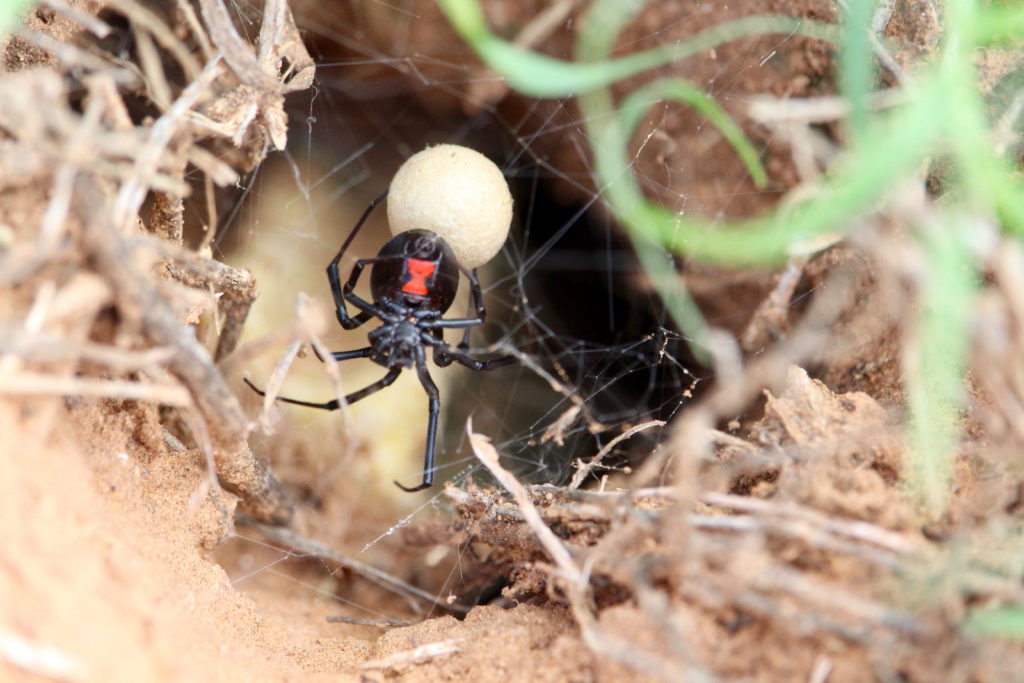
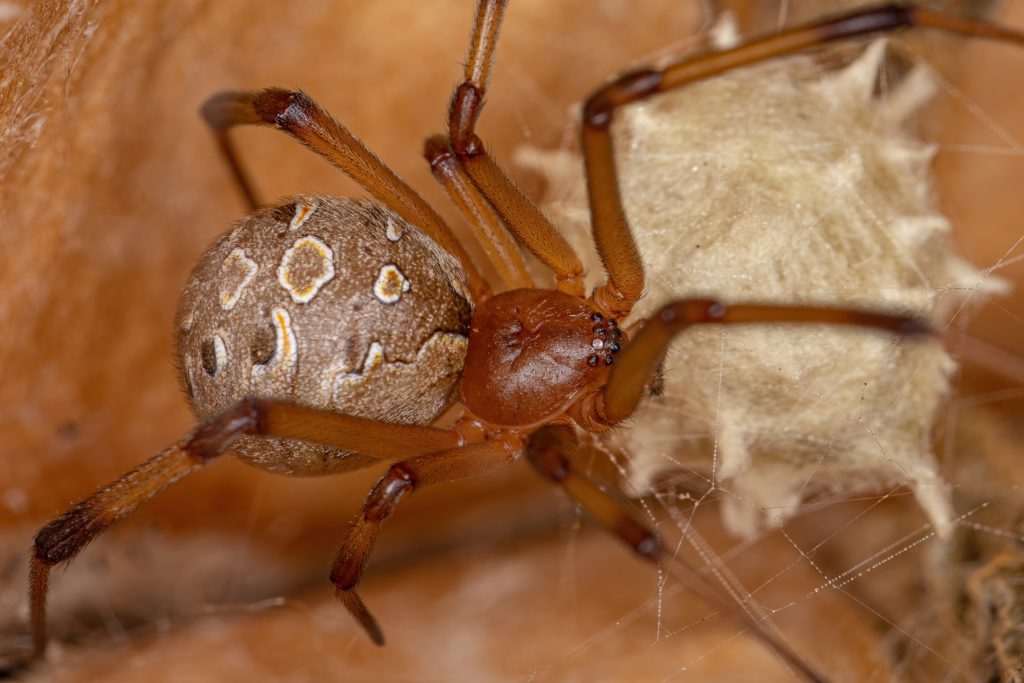
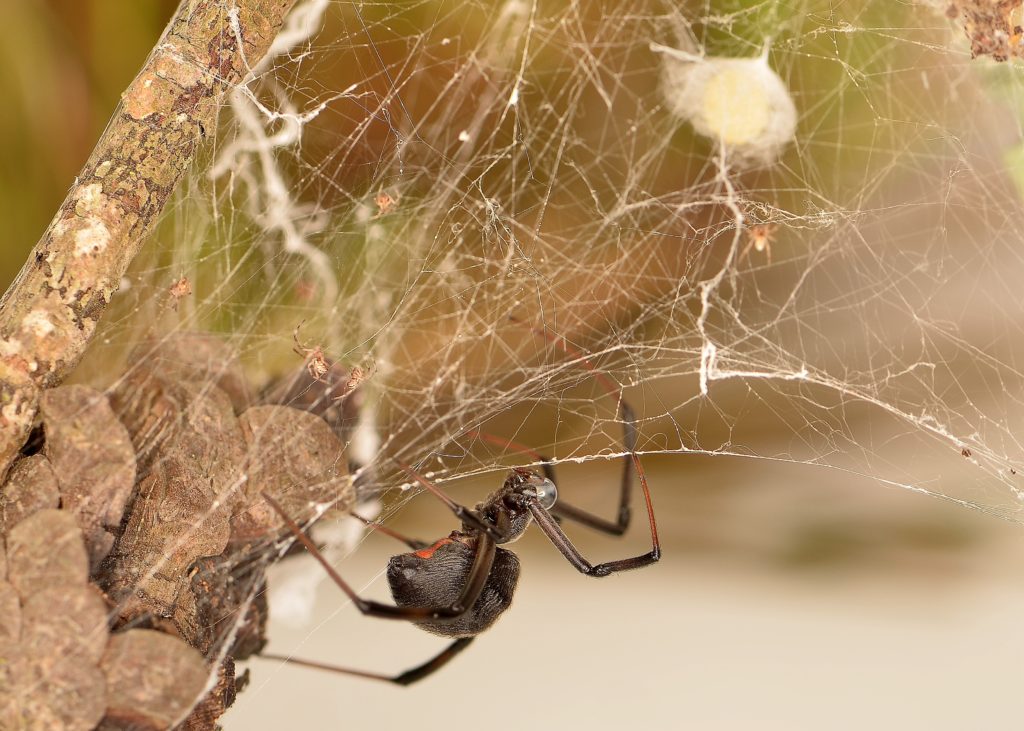
The brown recluse, another dangerous spider, does not have established populations in California. Other tan or brown spiders are often mistaken for brown recluses.
- Cobweb spiders hang upside down on tangled and irregularly spun webs waiting for prey. Most are harmless and small (except for widows), and their egg sacs look like small white balls with round yellow eggs inside.
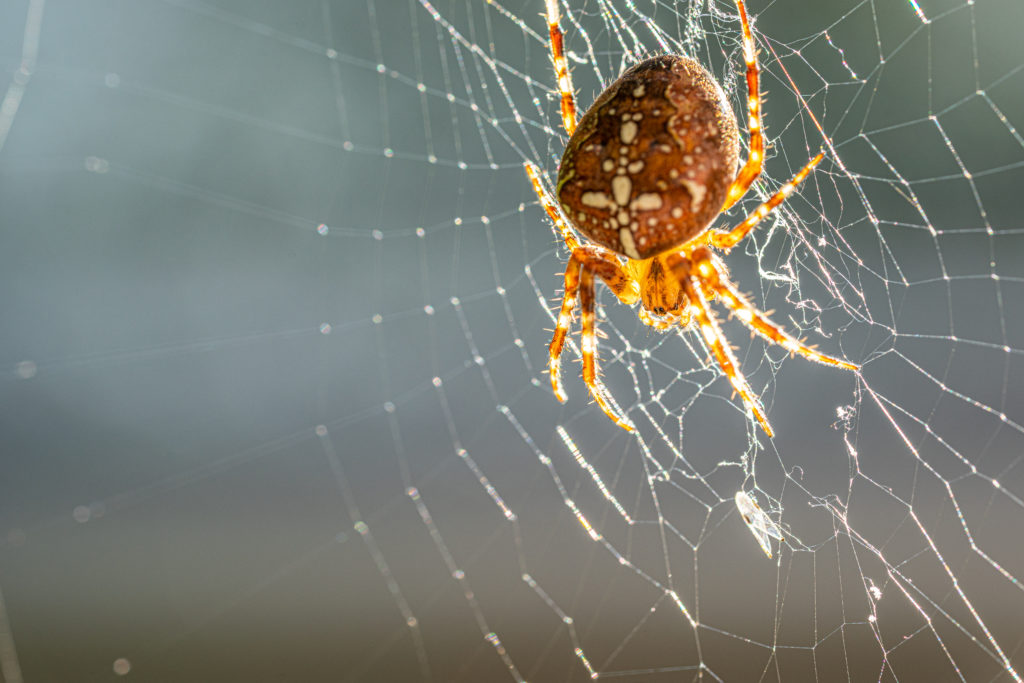
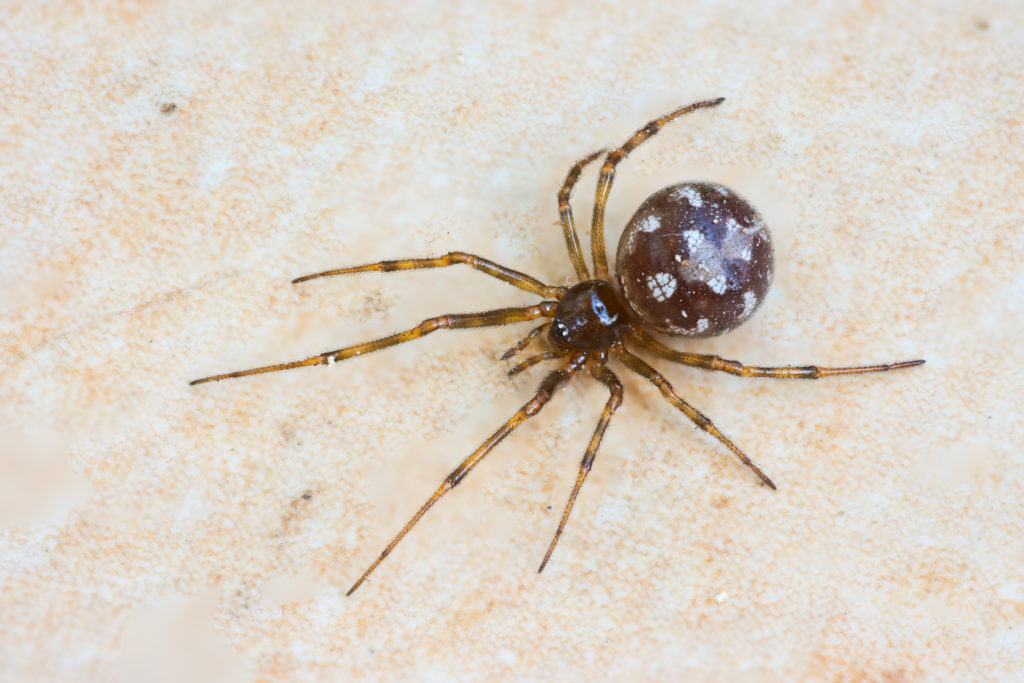
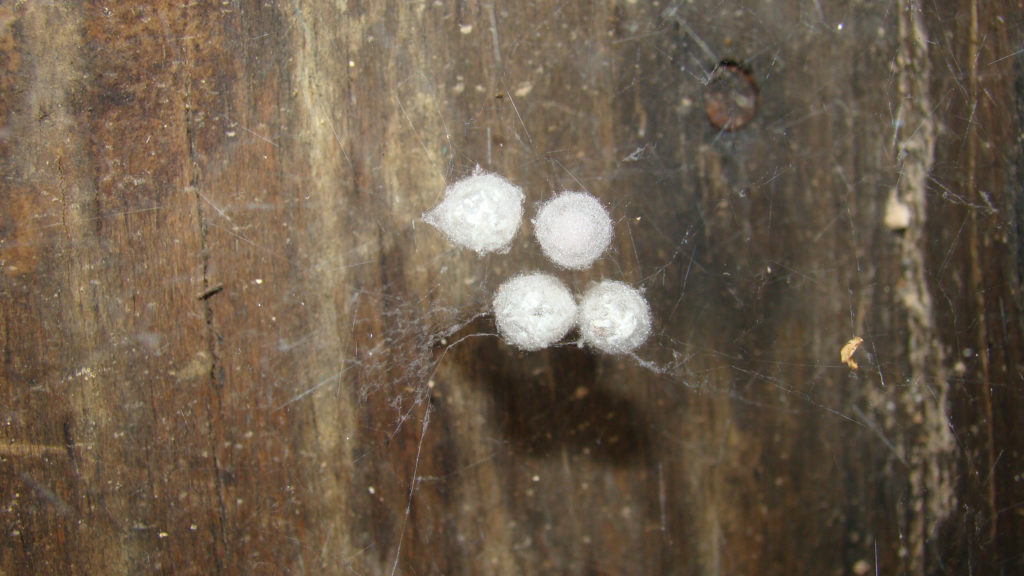
- Funnel weavers are found in gardens and spin thick and flattened webs. Their egg sacs are round and white with pale yellow and similarly shaped eggs inside.
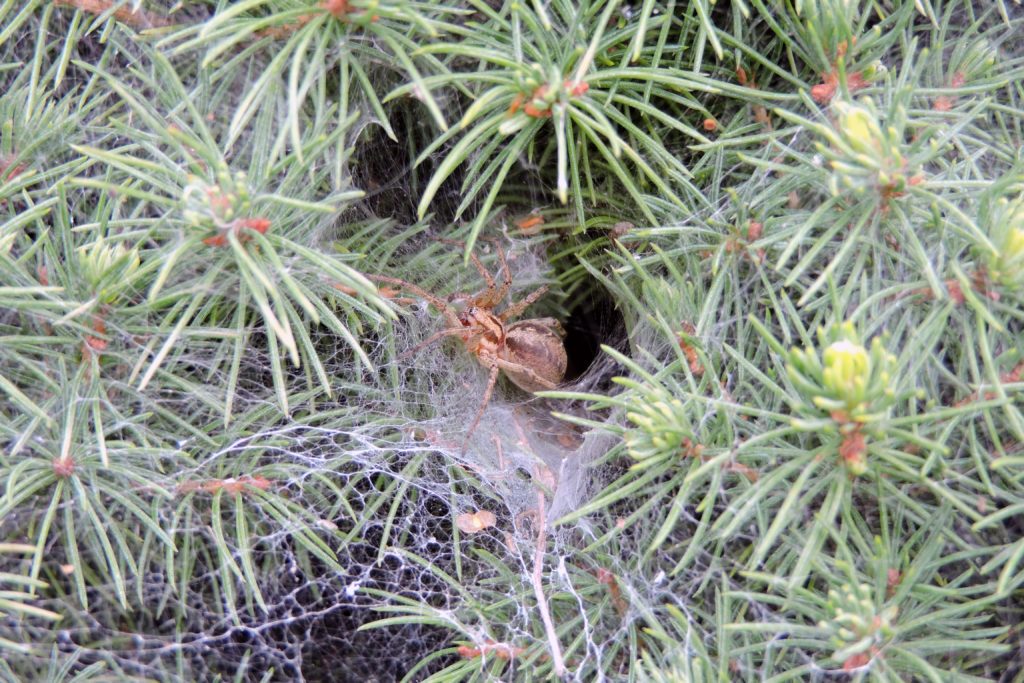
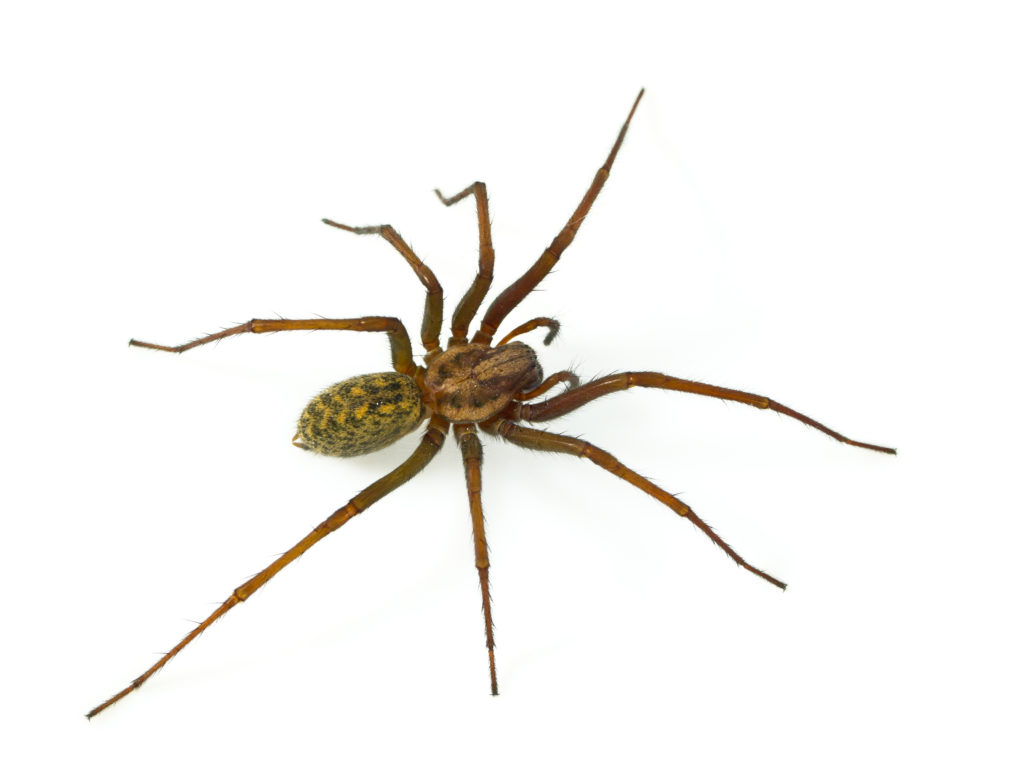
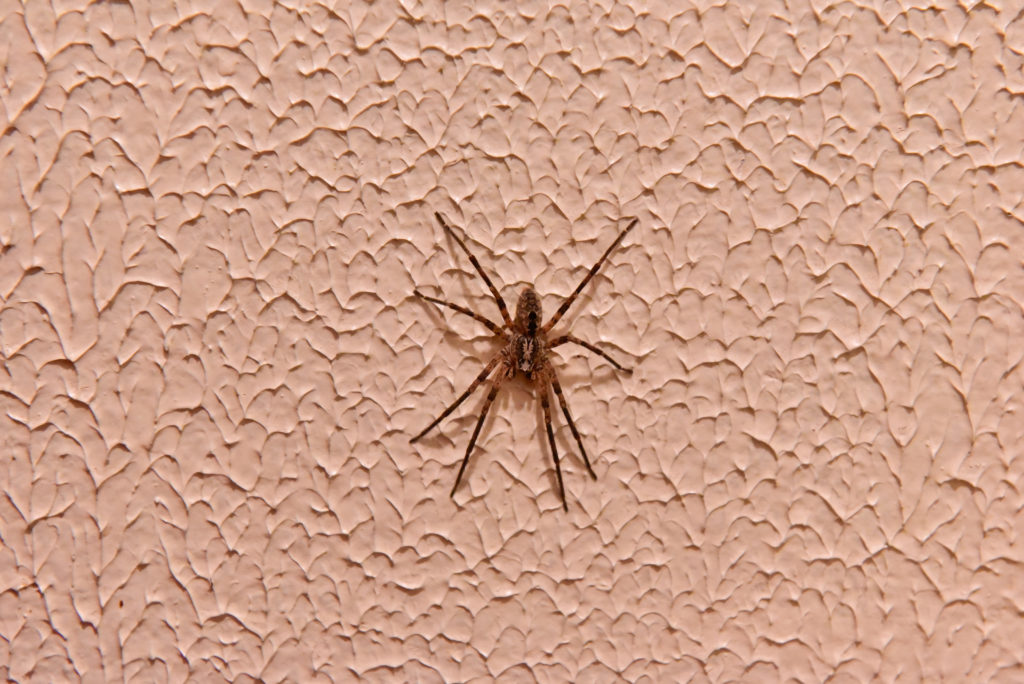
- Orb weaver or garden spiders are colorful, large, and spin elaborate webs in concentric circles in gardens. Their eggs are spherical and range in color from white to light brown, and are in multi-layered teardrop-shaped egg sacs.
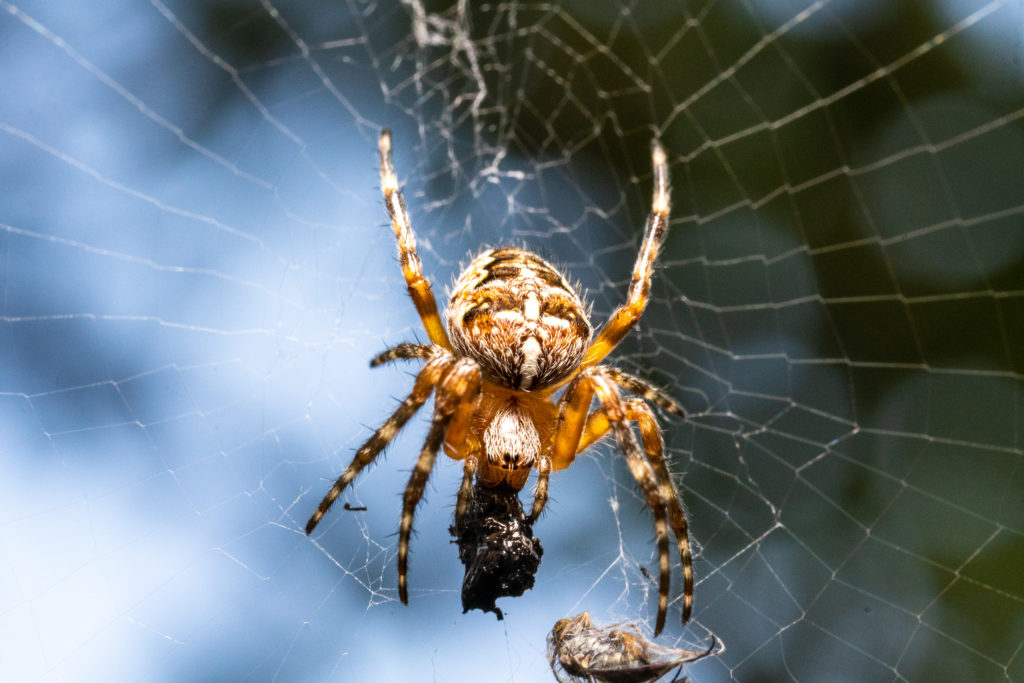
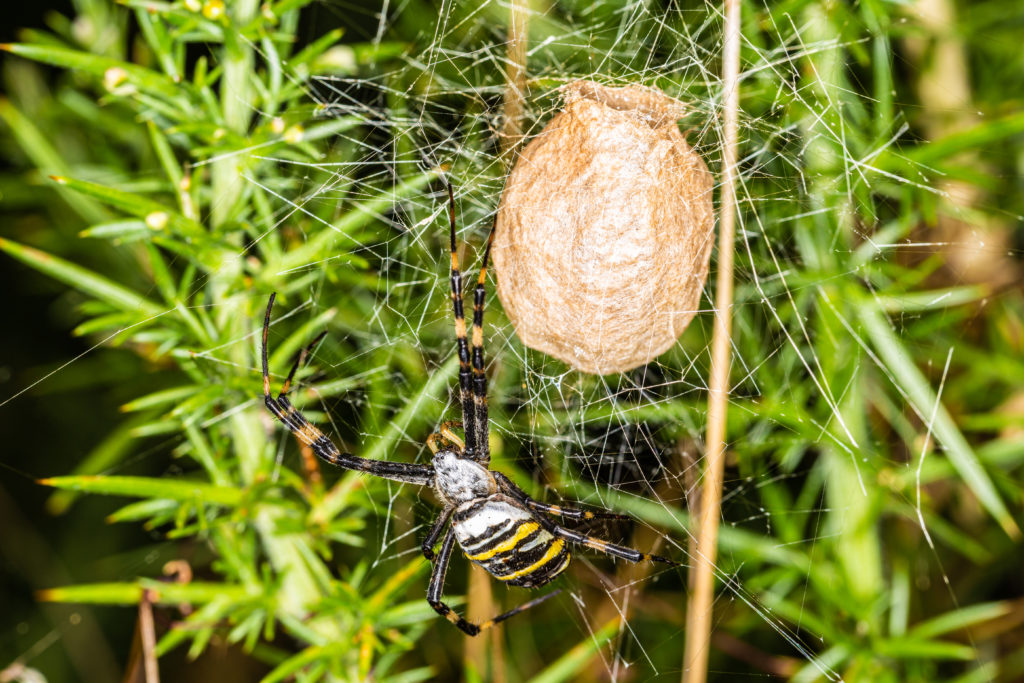
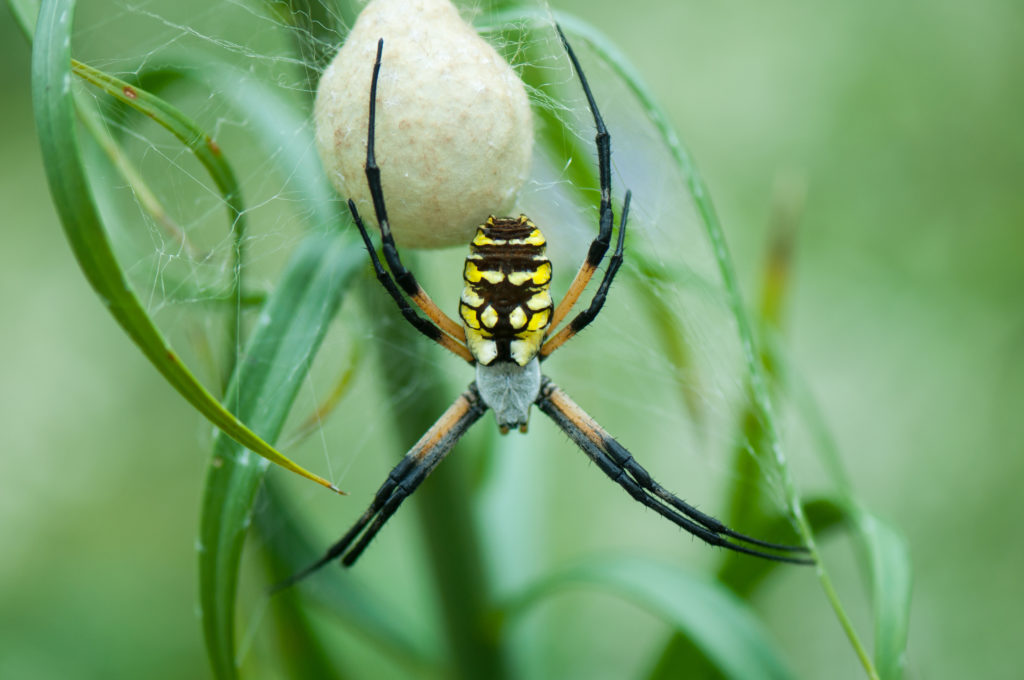
- Sac spiders hide in silk tubes, instead of webs, in places such as corners, beneath plants, or on bark. They stalk prey at night and their eggs are small, round, and covered in white silk sacs.
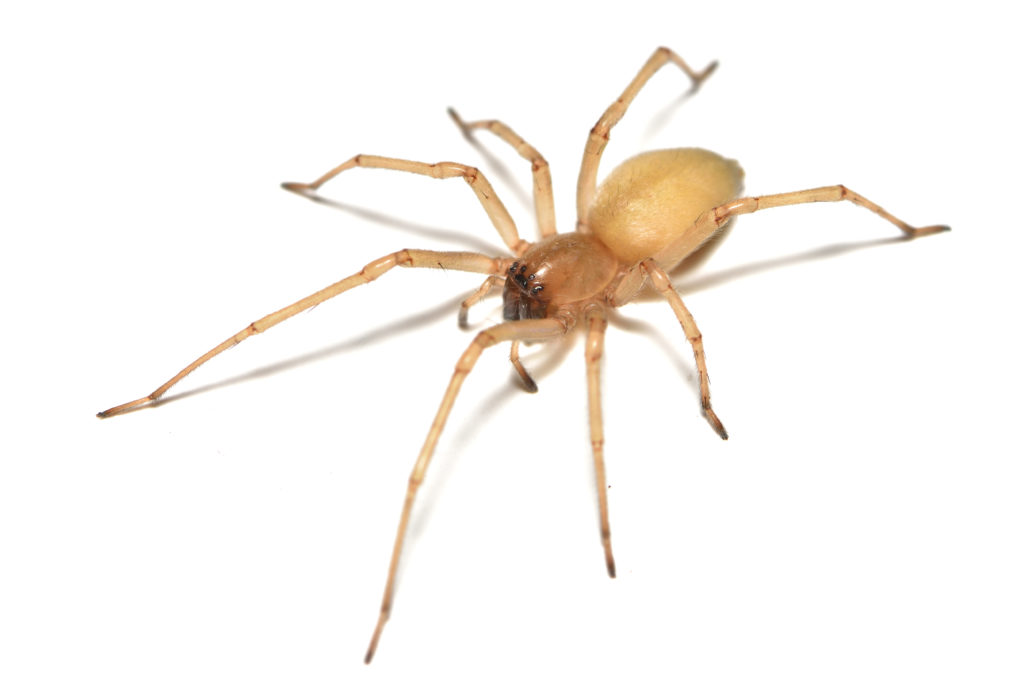
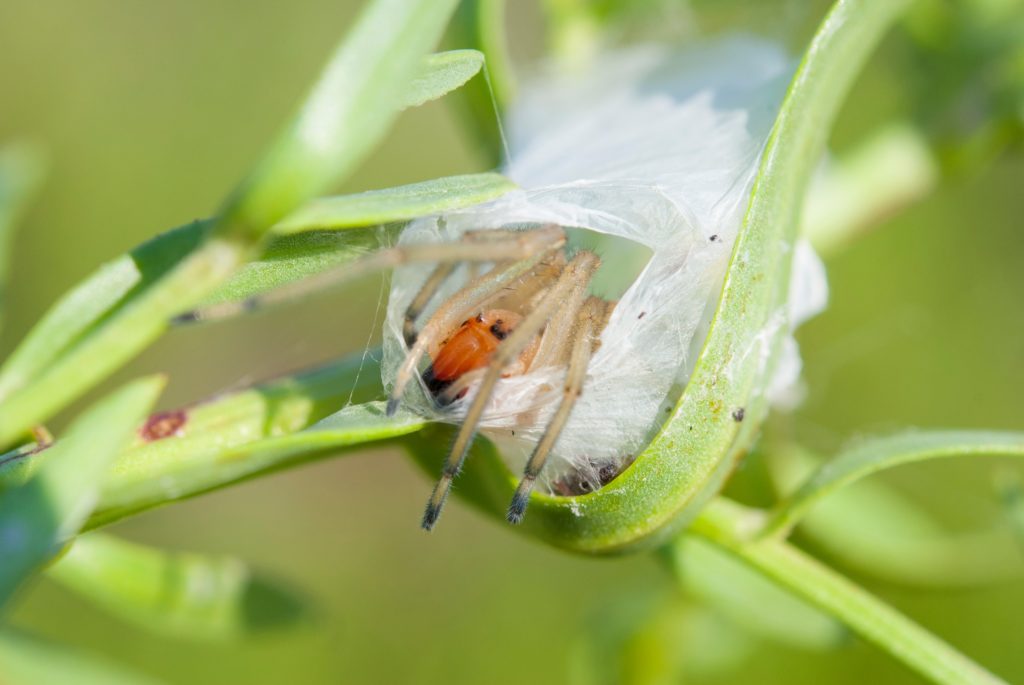
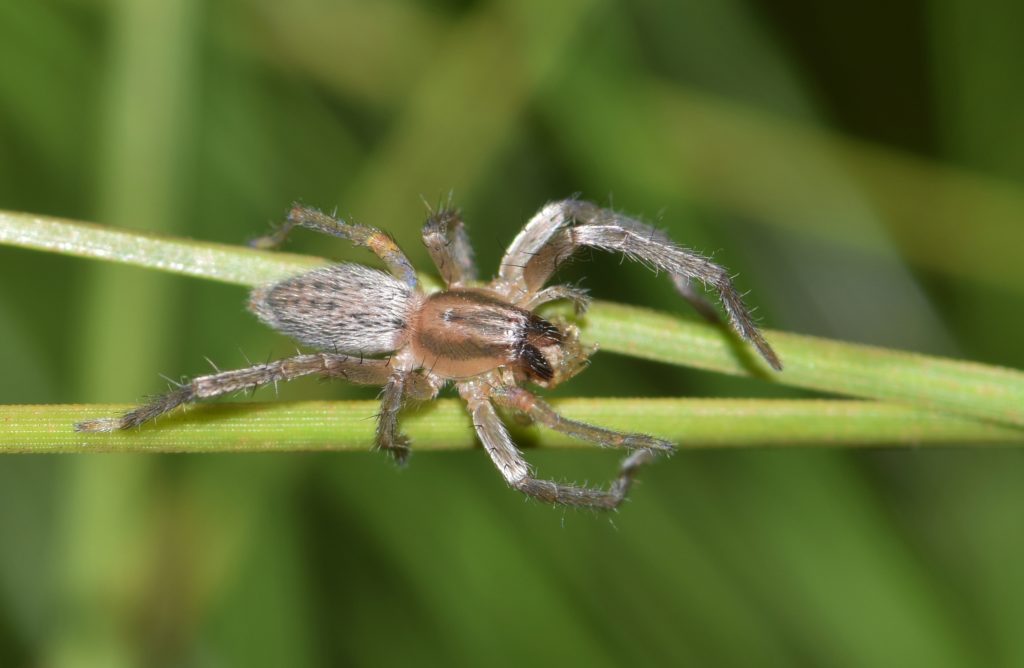
- Wolf spiders have long and hairy legs. They don’t build webs to capture prey, are often found running on the ground, and carry their round egg sacs.
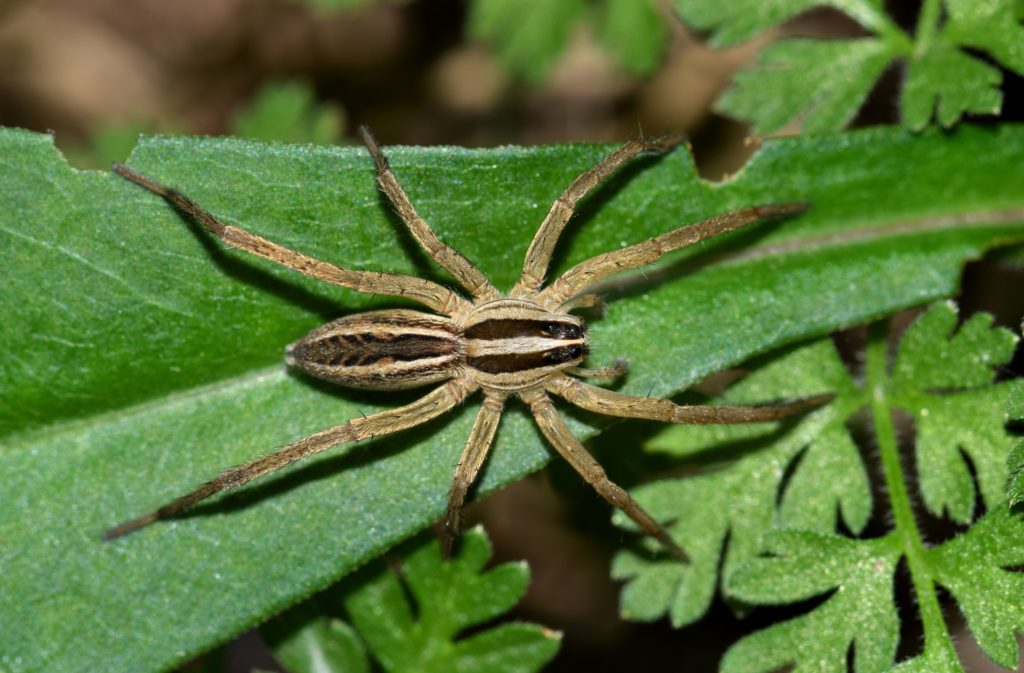
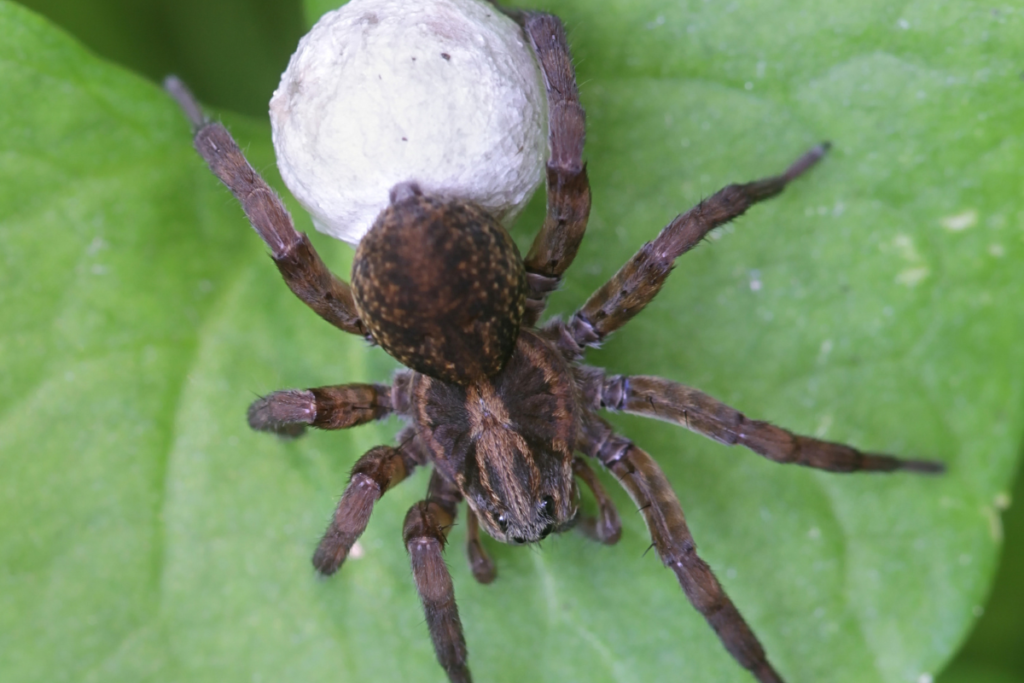
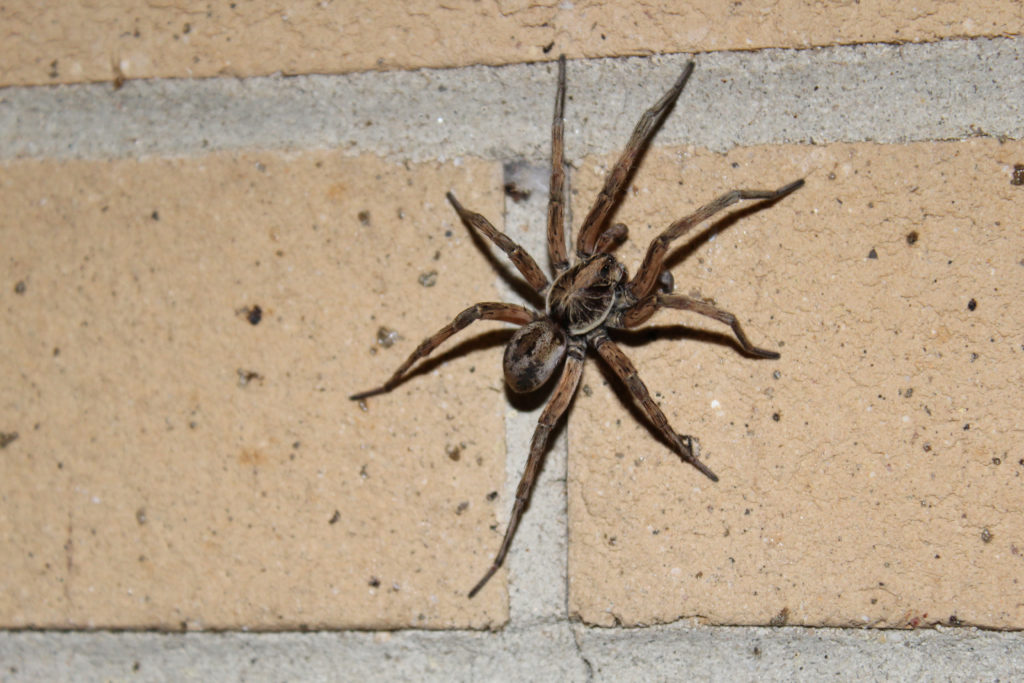
Resources
My Commitment: I commit to keeping my outdoor spaces clean to deter spiders.
Share Your Actions
Do you sweep regularly to keep your home’s outdoor areas clean and uncluttered? Post a photo on social media, tag us on Facebook and Instagram, and use the hashtag #GoodBadBuglyOC to be featured on our website!